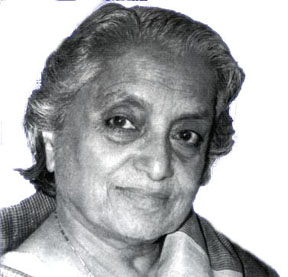
Traditionally, there have been two separate approaches. One approach takes us toward the social, the economic, the political problems, and says, “Look here, unless the economic and political problems are solved, there will be no happiness and no peace, there will be no end to suffering. It is the responsibility of every individual to engage in solving these problems according to some ideology.”
Inner life, the imbalances and impurities of the inner life, that is not so important, that can be taken care of later on, for it is a self-centered, egoistic activity.
But the responsibility is toward the society, toward the human race, so keep aside all those problems of meditation and silence, inner sophistication, transformation for inner revolution – keep all that aside. First turn toward this.”
And the other approach says, “The political and economic problems cannot be solved unless the individual is transformed totally. Be concerned with your psychological mutation, the inner, radical revolution. The political, the economic, the social problems can wait.”
People have generally followed one or the other of these two conventional approaches: religious groups concerned with inner growth and inner revolution, and social activist groups concerned with social service. Traditionally we have created boundaries, and exploration beyond our home territories has been only superficial. The social activists have staked out their territory, the outer life – the socioeconomic, political structures – and the spiritual people have staked out theirs – the inner world of higher dimensions of consciousness, transcendental experiences, and meditation.
The two groups, throughout history, have been contemptuous of each other. The social activists consider the spiritual inquirers to be self-indulgent, and the inquirers consider the activists to be caught in a race of activity, denying the essence of living.
Traditional spiritual leaders have divided life into worldly and spiritual, and have insisted that the world is illusion. They said, “This world is Maya, is an illusion. So whatever action you take should be in relation to the absolute truth and not in relation to Maya.”
Thus a religious person sitting in meditation for ten hours a day need not mind the tyranny or the exploitation or the cruelties surrounding him. He would say, “That’s not my responsibility. It’s God’s responsibility. God has created the world. He or She will take care of it.”
There have been superficial blendings, as spiritual groups take up social service work and social activists join religious organizations, but a real integration of social action and spirituality at a deep, innovative level has not yet happened to any significant degree. It has the sanction of society.
Each fragment of society has its own set of values. Among many social activists, anger, hatred, violence, bitterness, and cynicism are accepted norms, even though the effectiveness of these motivations for peaceful living has been seriously put in doubt.
And indifference to the needs of the poor has had shocking acceptance among generations of spiritual people who considered higher states of consciousness much more significant than the misery of the starving millions.
A new challenge awaits us: to go beyond fragmentation, to go beyond the incompatible sets of values held even by serious-minded people, to mature beyond the self-righteousness of one’s accepted approaches and be open to total living and total revolution.
In this era, to become a spiritual inquirer without social consciousness is a luxury that we can ill afford, and to be a social activist without a scientific understanding of the inner workings of the mind is the worst folly. Neither approach in isolation has had any significant success.
There is no question now that an inquirer will have to make an effort to be socially conscious or that an activist will have to be persuaded of the moral crisis in the human psyche, the significance of being attentive to the inner life.
Excerpted from Spirituality and Social Action: A Holistic Approach
Vimala Thakar






